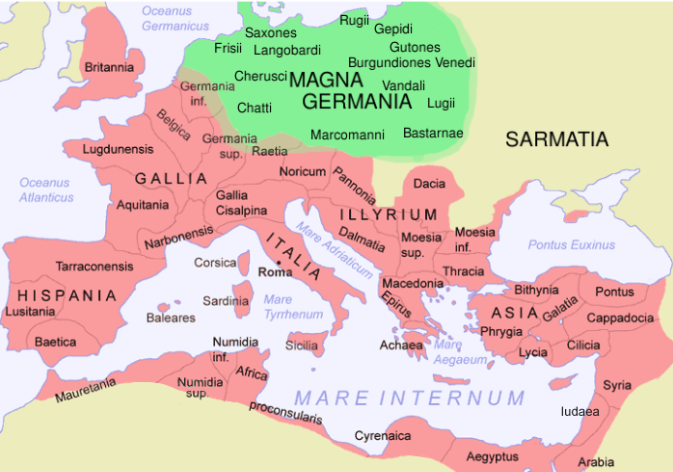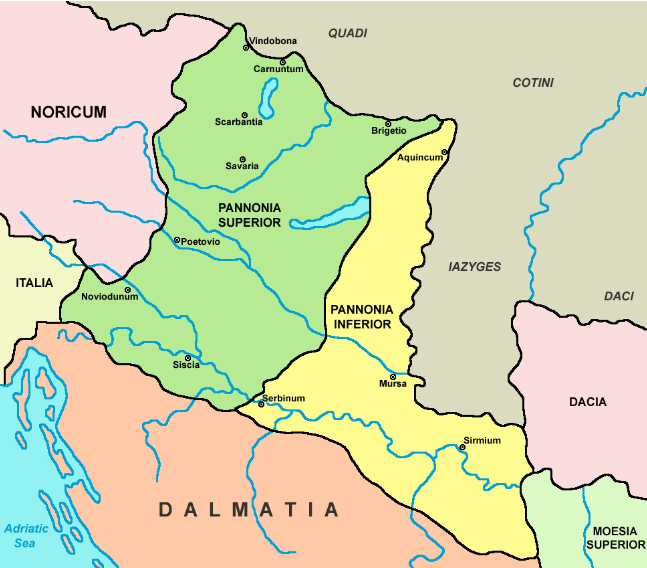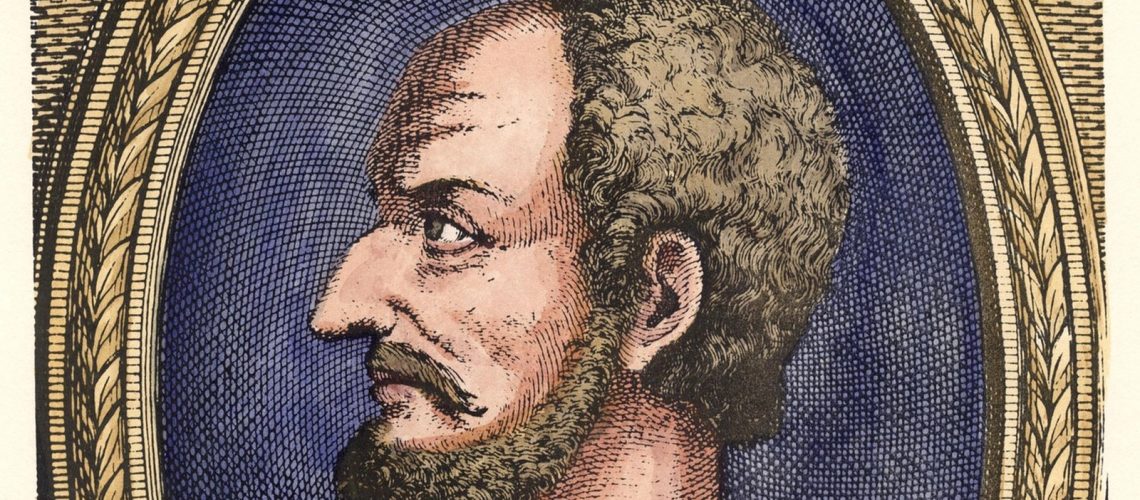Introduction
Written around 98 AD, Tacitus’ Germania provides the description of the Germanic nation and Rome’s relations with the Germanic people. Tacitus narrates his ideas using his own voice, yet generations of scholars argue over the true intentions of his words. Some have praised the work as libellus aureus, while others deem it one of the most dangerous books ever written. What causes such a rift in its interpretation, and why are many modern scholars still concerned about the contents of a book written nearly 2000 years ago?
It all comes down to how Tacitus characterizes the Germanic people and how individuals throughout history have applied these descriptions to depict the German nation in various ways. For instance, two Italian men—Enea Silvio Piccolomini and Giannatonio Campano—simultaneously used Germania (the same passages and descriptions, in fact) in opposing manners. While Piccolomini saw the Germanic nation as “barbaric, wild, and bestial,” Campano noted the isolation of Germany as honorable due to their generational/ethnic purity. Both used these interpretations for their own personal benefit: for political candidacy or under the command of Pope Paul respectively. Ultimately, I thought it would be interesting to observe Tacitus’ words that influenced these politics and how his original meaning has been lost in translation. Through these passages, I hope to identify key paragraphs that sparked my interest, in turn emphasizing the ambiguous nature of Tacitus’ account of Germany.
Thinking about historical implications, how could these select passages be used/twisted for different political means? What specific words/phrases do you foresee ambiguous interpretations?
Germania: Chapter 4
Context: In this section of his work, Tacitus writes about the biological developments of the Germans, pointing out their racial isolation from other nations. In a few sentences, Tacitus provides readers with a description of their physical appearances and natural abilities. The conception of the German nation Germaniae has changed drastically throughout its extensive history, especially when considering the implications of the Nazi regime’s rise during World War II. See if you can understand why this passage has been used for various political means and why it is considered “dangerous.”
Text in Latin: Ipse eorum opinionibus accedo, qui Germaniae populos nullis aliis aliarum nationum conubiis infectos propriam et sinceram et tantum sui similem gentem exstitisse arbitrantur. Unde habitus quoque corporum, tamquam in tanto hominum numero, idem omnibus: truces et caerulei oculi, rutilae comae, magna corpora et tantum ad impetum valida: laboris atque operum non eadem patientia, minimeque sitim aestumque tolerare, frigora atque inediam caelo solove adsueverunt.
My Translation: I myself agree with the opinions of them, who believe that the people of Germany, infected by no foreign intermarriages of other nations, appeared a race proper, pure, and so greatly similar themselves. Whence also the same quality was carried by all of the bodies, so as that it is in such great a number of people: savage and blue eyes, red hair, bodies large and so strong towards attack: they did not habituate the same sufferings of exertion and work, were least of all accustomed to endure thirst and heat, and were used to cold and hunger by the climate and soil.
Germania: Chapter 5
Context: In Chapter 5, Tacitus continues to depict the Germans, focusing on the environment of Germany. He compares the Germanic nature to those of Gaul, Noricum, and Pannonia, which were all provinces of the Roman empire at the time. Pay attention to the idea of natural beauty and the possibility for the Germanic land to be innately powerful.
Gaul was in western Europe (the area which is now modern-day France), Noricum was in today’s Austria, and Pannonia was just east of it (in the regions of Hungary, Croatia, and Lithuania). See Figures 1 & 2 for reference maps.
Text in Latin: Terra etsi aliquanto specie differt, in universum tamen aut silvis horrida aut paludibus foeda, umidior qua Gallias, ventosior qua Noricum ac Pannoniam adspicit; satis ferax, frugiferarum arborum inpatiens, pecorum fecunda, sed plerumque improcera. Ne armentis quidem suus honor aut gloria frontis: numero gaudent, eaeque solae et gratissimae opes sunt.
My Translation: The land, though it somewhat varies in appearance, however, in general, is either shaggy with forests or filthy with swamps, is more humid than on the side of Gaul, windier than in the direction of Noricum and Pannonia; it is adequately fertile, intolerant of fruit-bearing trees, teeming with cattle, but mostly undersized. The cattle do not even have their own value or frontal glory: they rejoice to the number, and this is also the sole most beloved asset.
Germania: Chapter 13
Context: A few sections later, Tacitus describes how the dynamics of power function in the Germanic nation. Keep in mind Tacitus’ frequent usage of buzz words: gloria, fama, vis, etc. These are the areas where the manipulation of the text’s meaning is often prevalent.
Text in Latin: Haec dignitas, hae vires, magno semper et electorum iuvenum globo circumdari, in pace decus, in bello praesidium. Nec solum in sua gente cuique, sed apud finitimas quoque civitates id nomen, ea gloria est, si numero ac virtute comitatus emineat; expetuntur enim legationibus et muneribus ornantur et ipsa plerumque fama bella profligant.
My Translation: It is this honor and this power to always be surrounded by a large sphere of select youths, into glory with peace, into protection by war. This glory is not only for each one in his own tribe, but also the reputation with neighboring states if he stands out followed by a considerable number and strength; for they are sought for by embassies, adorned with gifts, and frequently they conquer wars with fame itself.
References
Figure 1: The Roman Empire in 116 AD

Figure 2: A closer image of Pannonia and Noricum (2nd century)

Citations
- https://tacitovivo.ca/germania/chapters-1-10/
- https://tacitovivo.ca/germania/chapters-11-20/
- http://www.perseus.tufts.edu/hopper/text?doc=Perseus%3Atext%3A1999.02.0083%3Achapter%3D4
- http://www.perseus.tufts.edu/hopper/text?doc=Perseus%3Atext%3A1999.02.0083%3Achapter%3D5
- http://www.perseus.tufts.edu/hopper/text?doc=Perseus%3Atext%3A1999.02.0083%3Achapter%3D13
- Figure 1: https://commons.wikimedia.org/wiki/File:Imperium_Romanum_Germania.png
- Figure 2: https://en.wikipedia.org/wiki/Pannonia_Superior

